BEAUTY IN BRAIN DIFFERENCE:
A CAMPAIGN TO END FASD STIGMA
Our ‘Beauty in Brain Difference’ campaign is grounded in recognizing the strengths and challenges unique to people with Fetal Alcohol Spectrum Disorder (FASD). Stigma around FASD is a barrier to people reaching out for help or getting diagnosed, it is a barrier to accessing important resources and needed support. Together let’s end FASD stigma and ensure all Inuit have support, care and community.
ALCOHOL IN INUIT NUNANGAT
Alcohol in Inuit Nunangat has a specific history tied to the arrival of settlers, policies of assimilation that sought to destroy Inuit ways of life, and ongoing intergenerational trauma. FASD is not more common in Inuit or Indigenous communities, it exists wherever there is alcohol.
WHAT IS FASD?
Fetal Alcohol Spectrum Disorder (FASD) is a lifelong disability that affects the brain and body of a person exposed to alcohol in the womb. No two people with FASD are the same, it is helpful to understand FASD as a brain difference.
DIGITAL TOOLKIT
We have developed a series of tools using a strengths-based and harm-reduction approach. This includes key messages, shareable graphics, posters, a discussion guide, and a list of FASD-specific resources all housed in one digital toolkit that can be easily shared across Inuit communities and with people and professions that engage with Inuit with FASD.
POSTERS
Show your support by displaying our posters at school, community centre, doctor’s offices or wherever your community gathers.
KEY MESSAGING
Spread the word to your audience using our proposed messaging that is grounded in dignity-informed and harm-reducing language.
DISCUSSION GUIDE
FASD is not easy to talk openly about due to stigma, shame and because the spectrum disorder affects each person differently. We have developed this discussion guide to help open conversations about FASD in a way that promotes dignity and respect.
REPORTS
During the past year, we have been having two kinds of conversations about FASD. First, we have been interviewing health care workers, frontline providers, people in education and social services, as well as anyone who works in the field of family health and FASD, on the topics of alcohol consumption, maternal and infant health and FASD. Second, we have been having conversations with volunteer participants in communities and in specific urban centers around the same topics. These conversations were focused on personal experiences. The information and stories provided in these conversations has been compiled into a final research report, that identifies how FASD is understood, how individuals living with FASD are supported within our communities, and the social and physical barriers that can prevent families from accessing the appropriate services or level of care required to meet their unique needs.
SOCIAL MEDIA GRAPHICS
We’ve created these shareables for you to use or draw inspiration from to make ones that fit your organization’s needs and goals.
PUBLICATIONS
POSTERS
Show your support by displaying our posters at school, community centre, doctor’s offices or wherever your community gathers.
Spread the word to your audience using our proposed messaging that is grounded in dignity-informed and harm-reducing language.
Use the sample posts below or make them your own to highlight why the Beauty in Brain Differences campaign is important to you.
- Let’s celebrate the strengths of Inuit with #FASD.
- It’s time for Inuit with FASD to lead the conversation.
Let’s come together to listen, learn, and see things with a new outlook. #BeautyInBrainDifference - Together we can end #FASD #stigma and ensure all Inuit receive support, care, and community.
- Discover the #BeautyInBrainDifference today pauktuutit.ca/beauty-in-brain-differences
| Key Messages | |
|---|---|
| Fetal Alcohol Spectrum Disorder is a lifelong disability that affects the brain and body of a person exposed to alcohol in the womb. | ᐃᒥᐊᓗᒻᒧᑦ ᐃᑦᑕᑦᑕᐅᓯᒪᓂᖃᕐᓂᖅ ᐃᓅᓯᓕᒫᒥᓄᑦ ᐊᔪᕈᑎᖃᕐᓂᐊᓕᖅᑐᖅ, ᖃᕆᓴᖓ ᐊᒻᒪᓗ ᑎᒥᖓ ᐃᒥᐊᓗᒻᒧᑦ ᐃᑦᑕᑦᑕᐅᓯᒪᒻᒪᑦ ᐃᓕᐊᖓᓃᑦᑎᓪᓗᒍ. |
| The diagnostic term was changed from ʻsyndromeʼ to ʻspectrum disorderʼ because people with FASD have strengths and challenges unique to them; no two people with FASD are the same. | ᖃᐅᔨᓴᐅᑎᖃᓲᑦ ᐊᓯᔾᔨᓯᒪᒻᒪᑕ ʻᖃᓄᐃᒍᑎᖃᕐᓂᖅʼ ᐅᓇ ᐊᑐᖅᑕᐅᓲᖑᓕᖅᑐᖅ ʻᖃᕆᓴᖓᓂ ᖃᓄᐃᒍᑎᖃᕐᓂᖅ ᐃᒥᐊᓗᒻᒧᑦ ᐃᑦᑕᑦᑕᐅᓯᒪᓂᖃᖅᑐᑦ ᐱᔪᓐᓇᕐᓂᖃᑦᓯᐊᖅᑐᑦ, ᐊᔾᔨᒌᖏᓐᓇᕐᒥᑦ ᐃᑦᑕᑦᑕᐅᓯᓂᖃᕈᓐᓇᙱᑦᑐᑦ. |
| It is helpful to understand FASD as a brain difference. | ᐃᑲᔪᓂᖃᕋᔭᖅᑐᖅ ᑐᑭᓯᐊᒐᓱᐊᕈᑦᑕ ᖃᓄᖅ ᐃᒥᐊᓗᒻᒧᑦ ᐃᑦᑕᑦᑕᐅᓯᓂᖃᖅᑐᑦ ᖃᕆᓴᖏᑦ ᐊᔾᔨᒌᖏᓐᓂᖃᕐᓂᖏᓐᓂᒃ. |
| Alcohol in Inuit Nunangat has a specific history tied to the arrival of settlers, policies of assimilation that sought to destroy Inuit ways of life, and ongoing intergenerational trauma. | ᐃᓄᐃᑦ ᐃᓕᖅᑯᓯᖏᑦ ᐊᓯᔾᔨᑉᐸᓪᓕᐊᓕᖅᑎᓪᓗᒋᑦ ᑎᑭᑕᐅᕙᓪᓕᐊᓕᖅᑎᓪᓗᒋᑦ ᐃᓄᐃᑦ ᐃᓕᖅᑯᓯᖏᑦ ᐃᓅᓯᖏᑦ ᐊᒃᓱᕈᕈᑕᐅᓯᒪᓂᖏᓐᓄᑦ ᐃᒥᐊᓗᒻᒧᑦ ᐱᔾᔪᑕᐅᓯᒪᔪᑦ. |
| Inuit with FASD see and move through the world with a unique perspective. Thereʼs beauty in brain differences. Letʼs celebrate all of us. | ᐃᓄᐃᑦ ᐃᒥᐊᓗᒻᒧᑦ ᐃᑦᑕᑦᑕᐅᓯᒪᓂᖃᖅᑐᑦ ᐃᓚᒋᔭᐅᓂᖏᑦ ᓯᓚᕐᔪᐊᕐᒥ ᑕᐅᑐᓐᓂᖏᑦ ᐃᑉᐱᓐᓂᐊᓂᖏᑦ ᒪᓕᑦᑐᒋᑦ. ᐃᓅᓯᖅᑎᓐᓂᒃ ᖁᕕᐊᓲᑎᖃᓚᐅᖅᑕ. |
| Letʼs end FASD stigma and support people with FASD to ensure that all Inuit receive support, care, and community. | ᐃᒥᐊᓗᒻᒧᑦ ᐃᑦᑕᑦᑕᐅᓯᒪᓂᖃᖅᑐᑦ ᑲᙳᓲᑎᒋᐊᖃᕈᓐᓃᖅᑐᑦ ᐃᑲᔪᖅᓱᒋᐊᖃᖔᖅᑕᕗᑦ ᐃᓄᐃᑦ ᑕᒪᕐᒥᒃ ᐃᑲᔪᕈᑎᒃᓴᓂᒃ ᐊᑐᐃᓐᓇᖃᕐᕕᐅᒋᐊᓖᑦ, ᐃᑉᐱᒋᔭᐅᑦᓯᐊᕆᐊᓖᑦ ᐃᓚᓕᐅᔾᔭᐅᓯᒪᔭᕆᐊᓖᑦ ᓄᓇᖅᑲᑎᖏᓐᓄᑦ. |
| Itʼs time for Inuit with FASD to lead the conversation. Letʼs come together to listen, learn, and see things with a new outlook. | ᐃᓄᐃᑦ ᐃᒥᐊᓗᒻᒧᑦ ᐃᑦᑕᑦᑕᐅᓯᒪᓂᖃᖅᑐᑦ ᐱᕕᖃᖅᑎᒋᐊᖃᖅᑕᕗᑦ ᐅᖃᓕᒪᖃᑎᒋᔭᕆᐊᖃᓕᖅᑕᕗᑦ. ᐃᓕᓴᕕᒋᓗᒋᑦ, ᓈᓚᓪᓗᒋᑦ, ᐃᓚᐅᒋᔭᐅᓂᕐᒥᓂᒃ ᑕᑯᖁᓗᒋᑦ. |

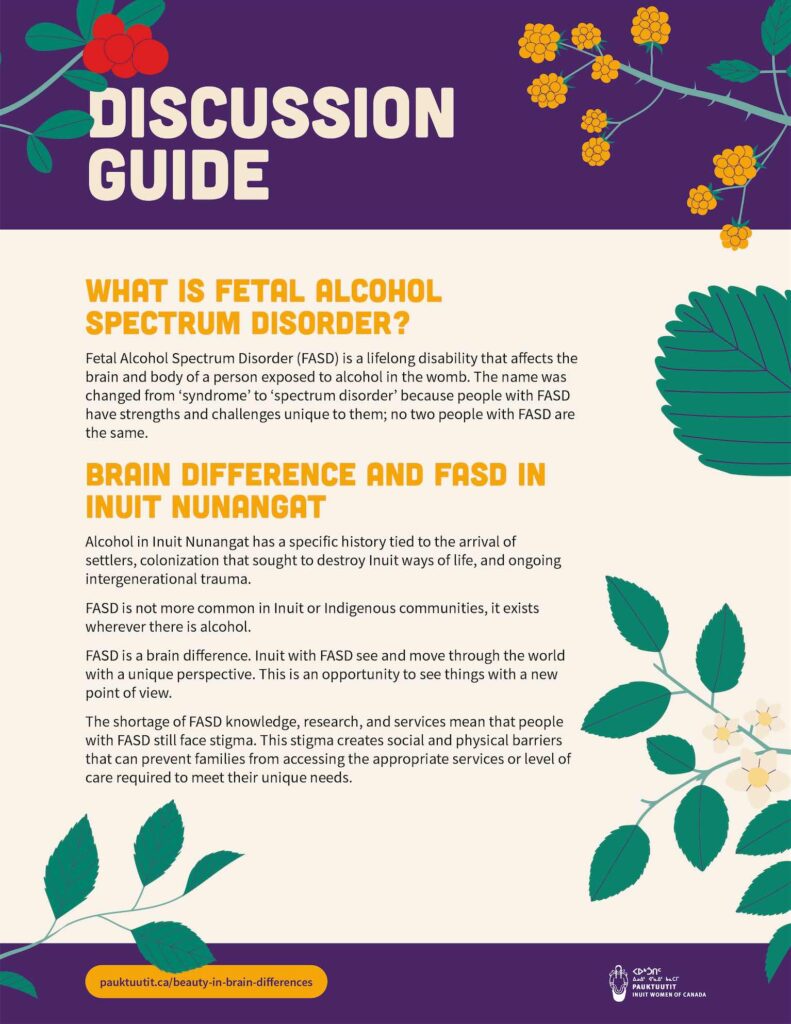
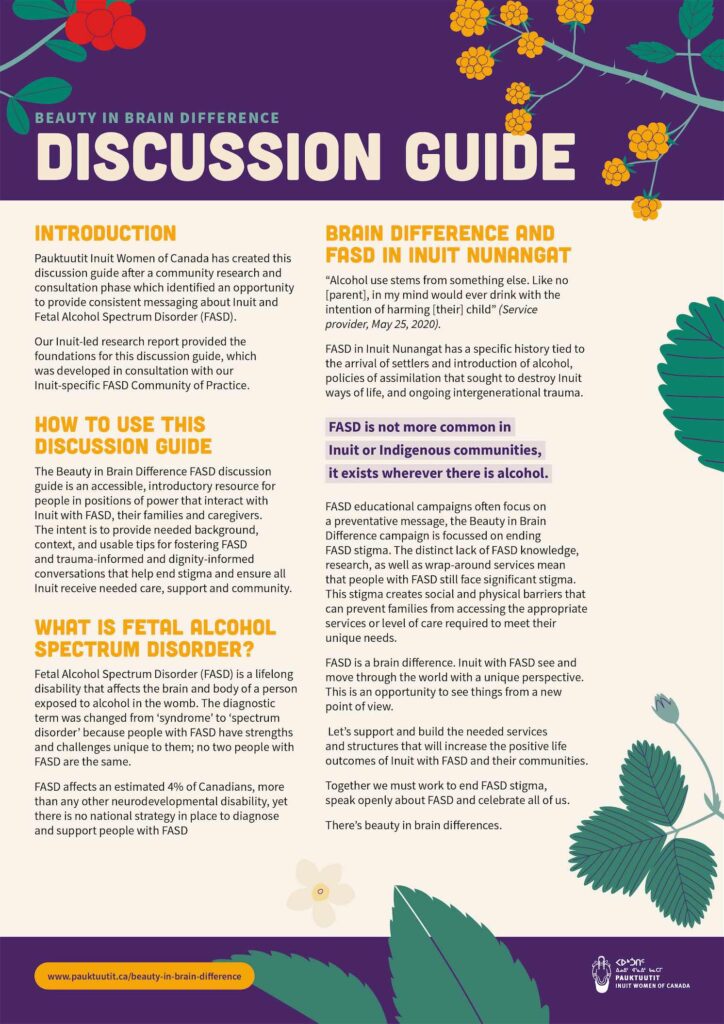
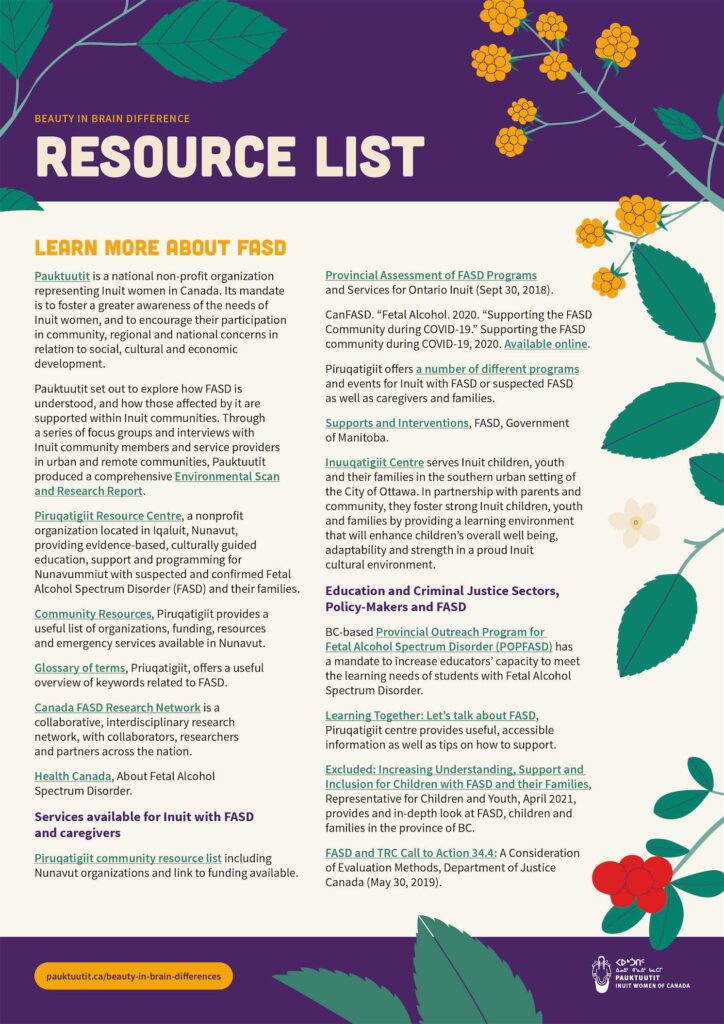
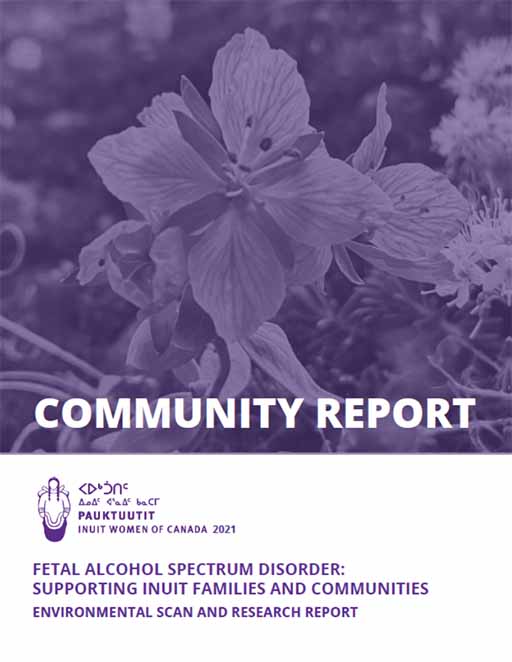
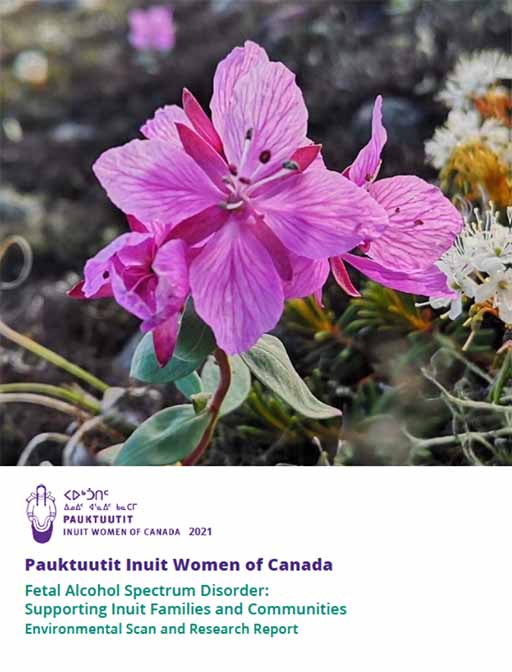
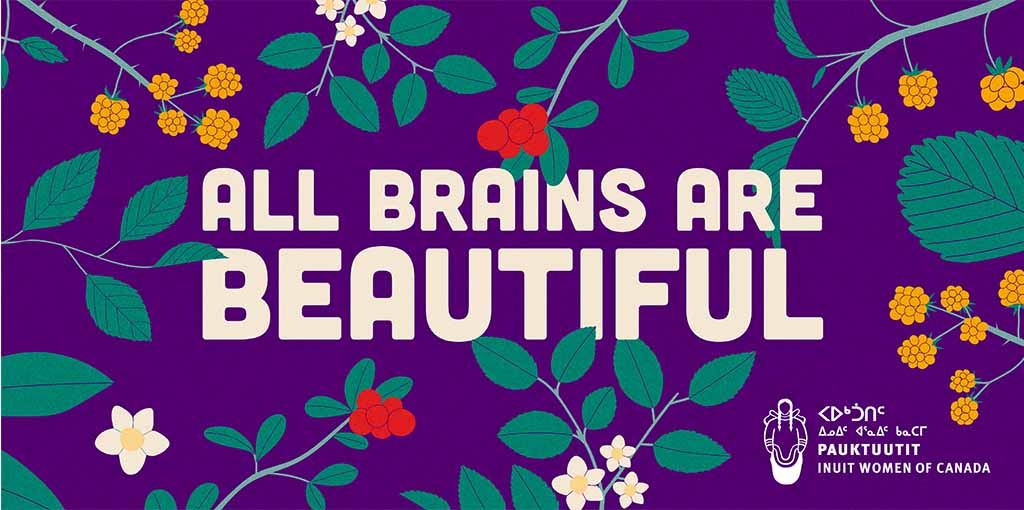
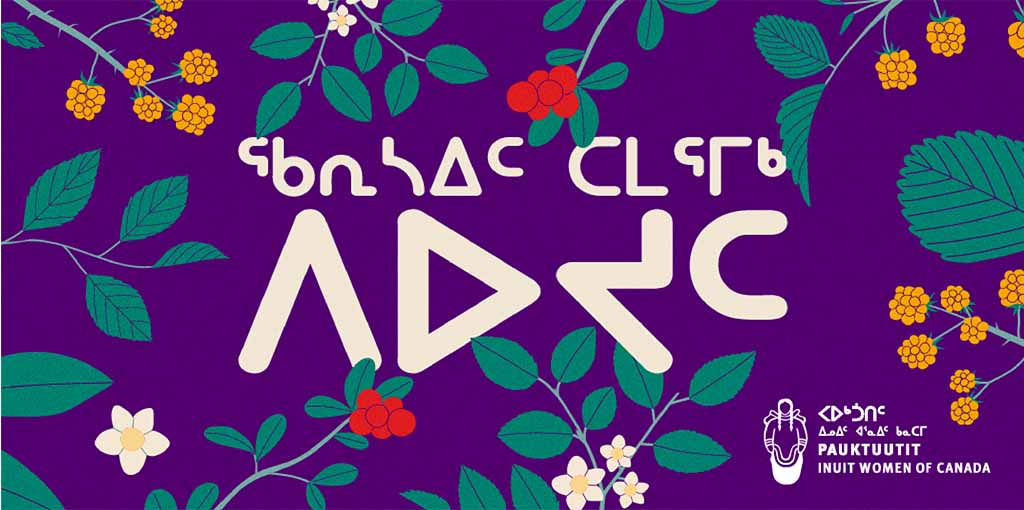
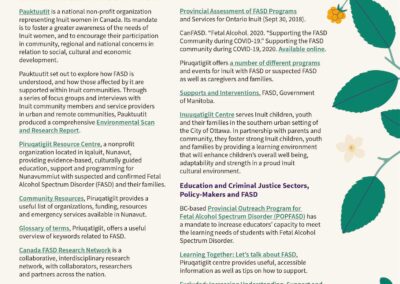
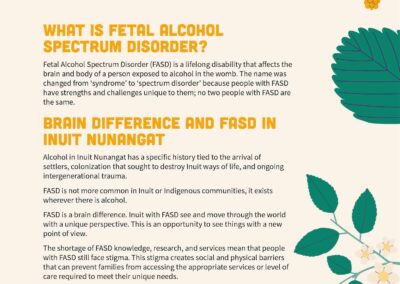
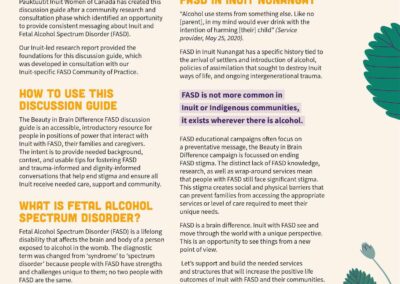
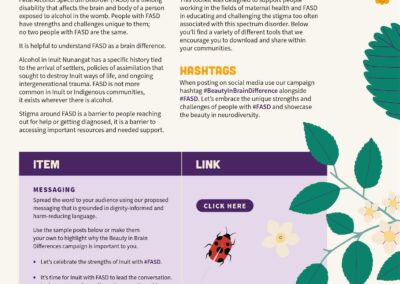
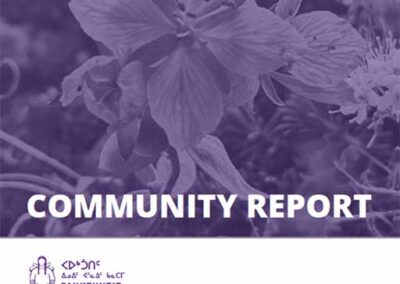
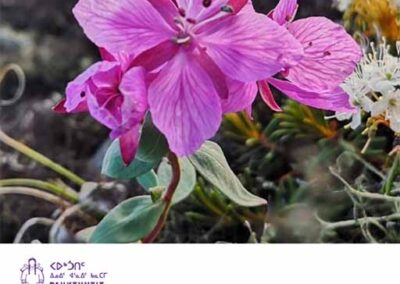
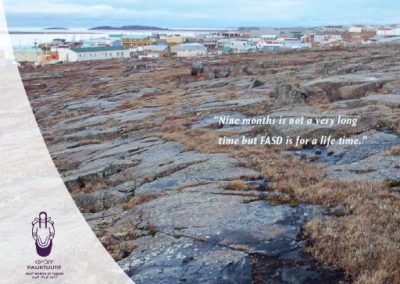
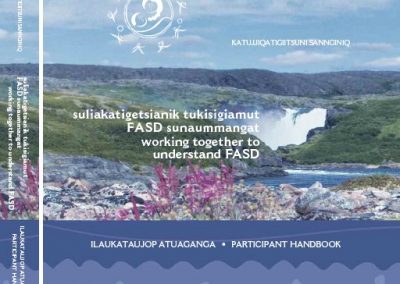
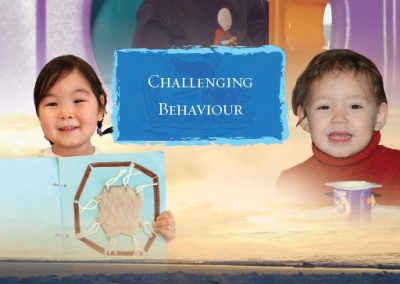
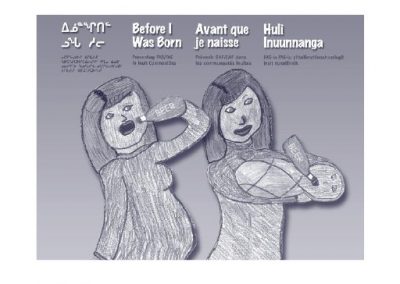
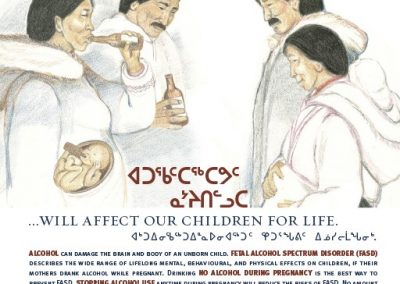
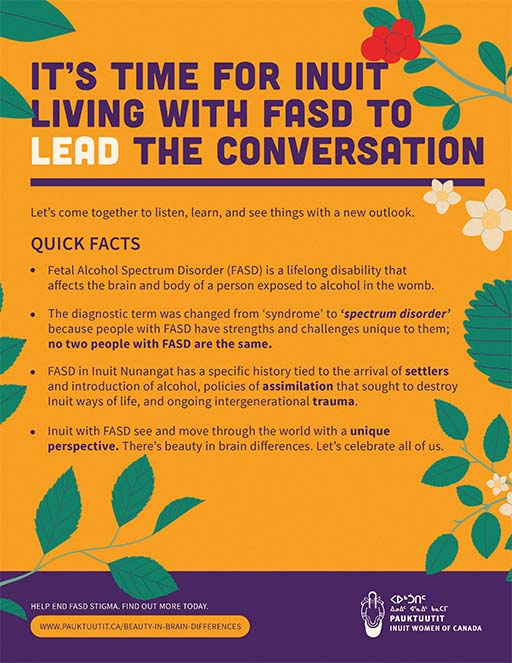
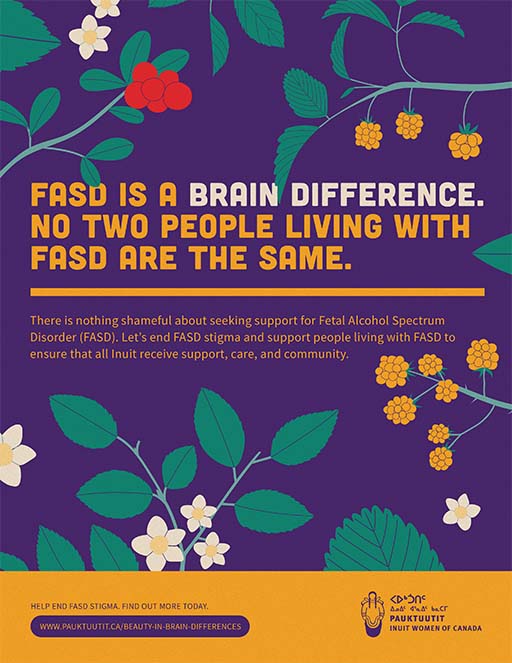
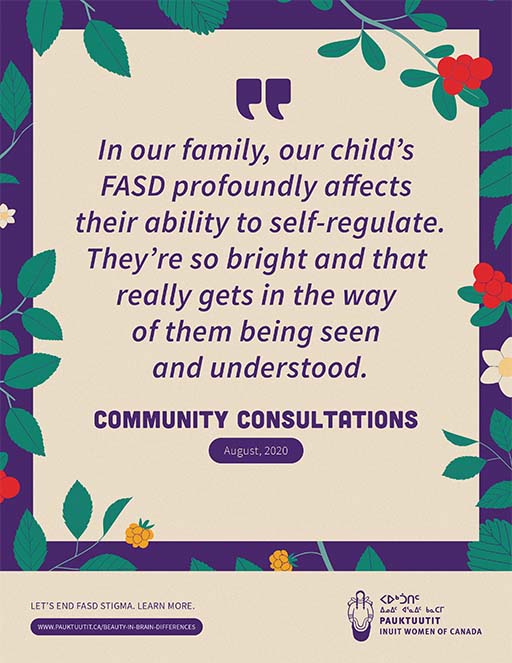
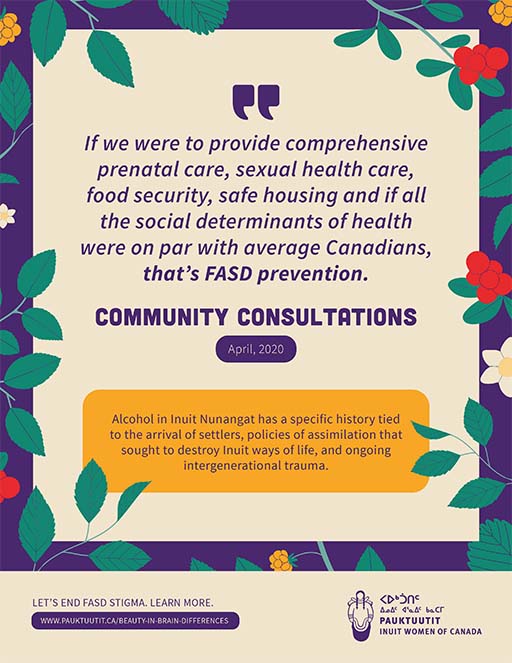
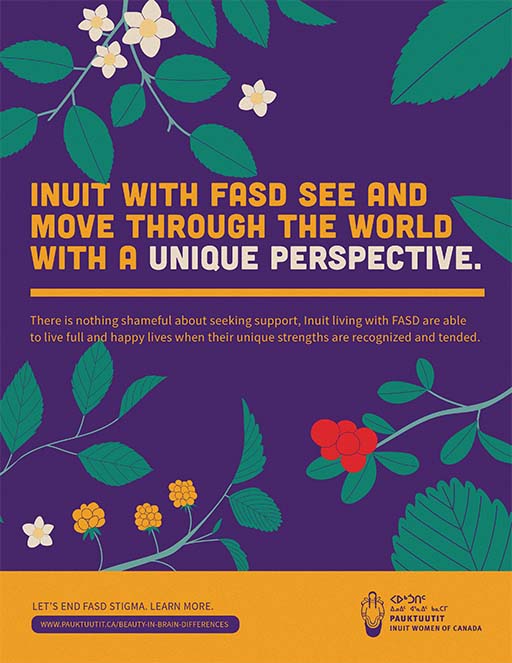
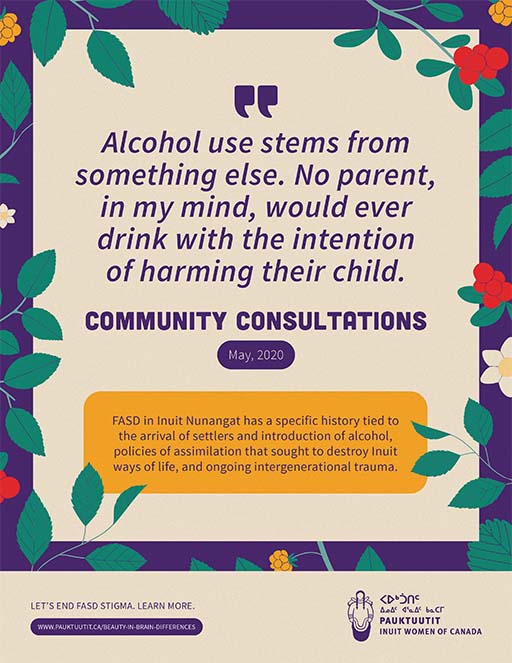
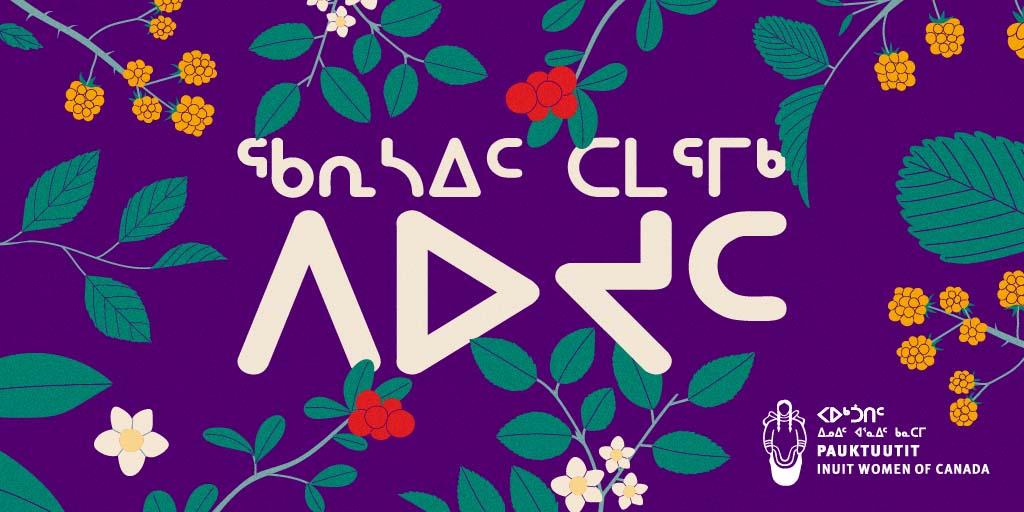
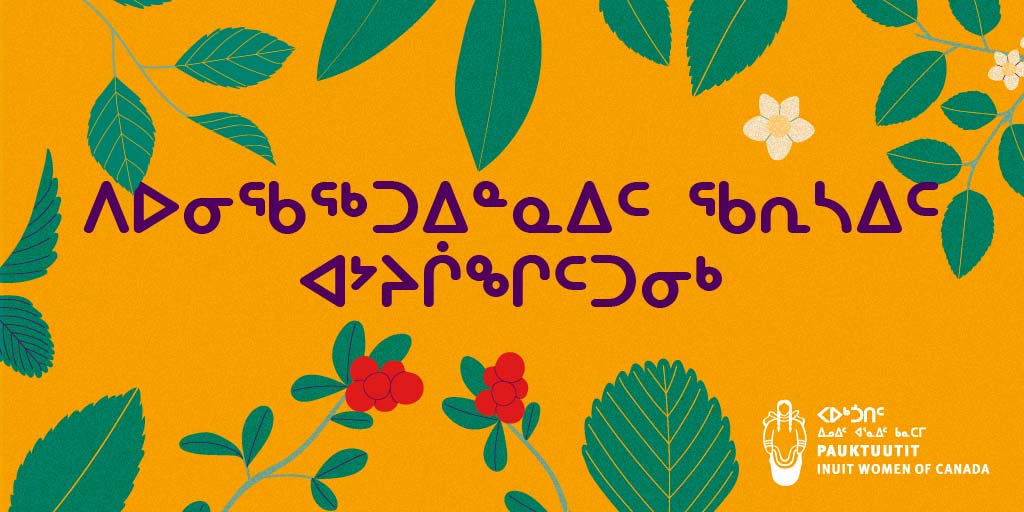
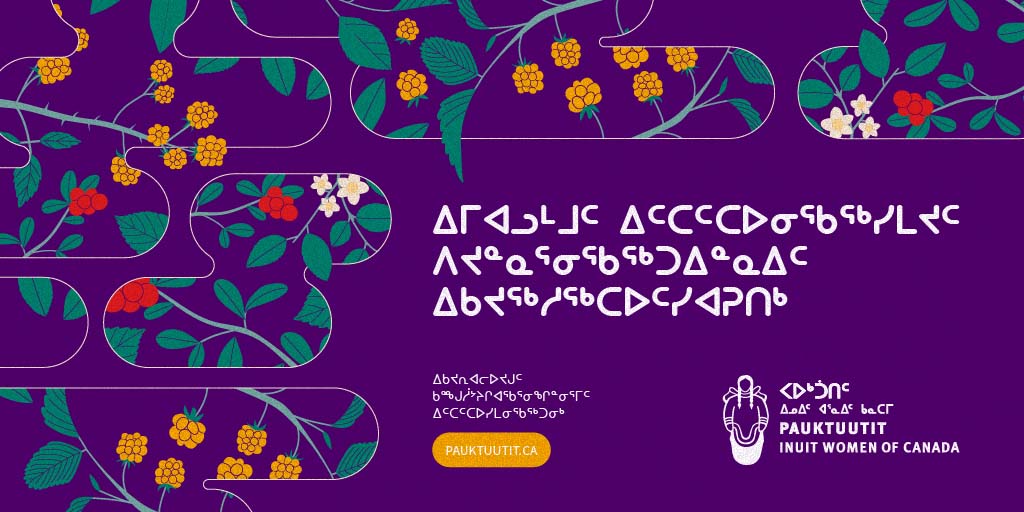
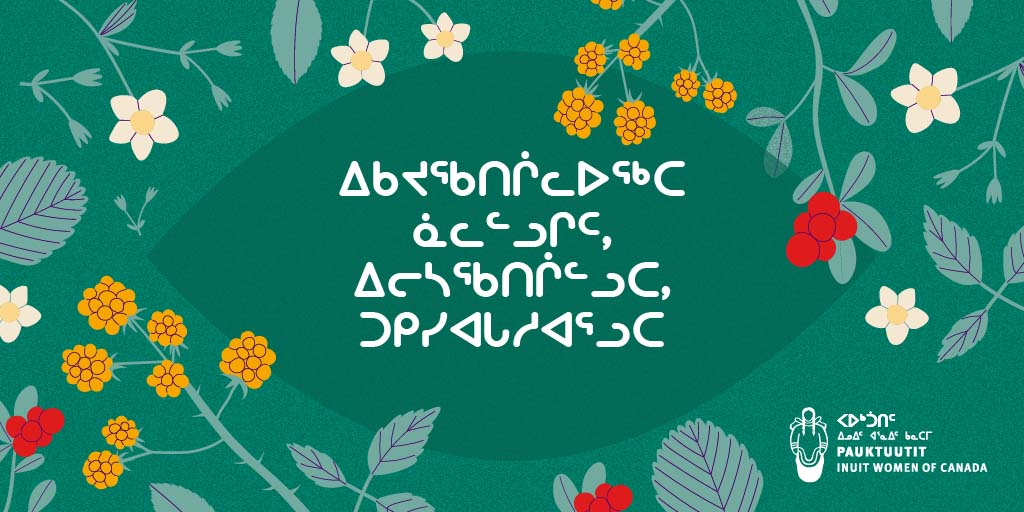
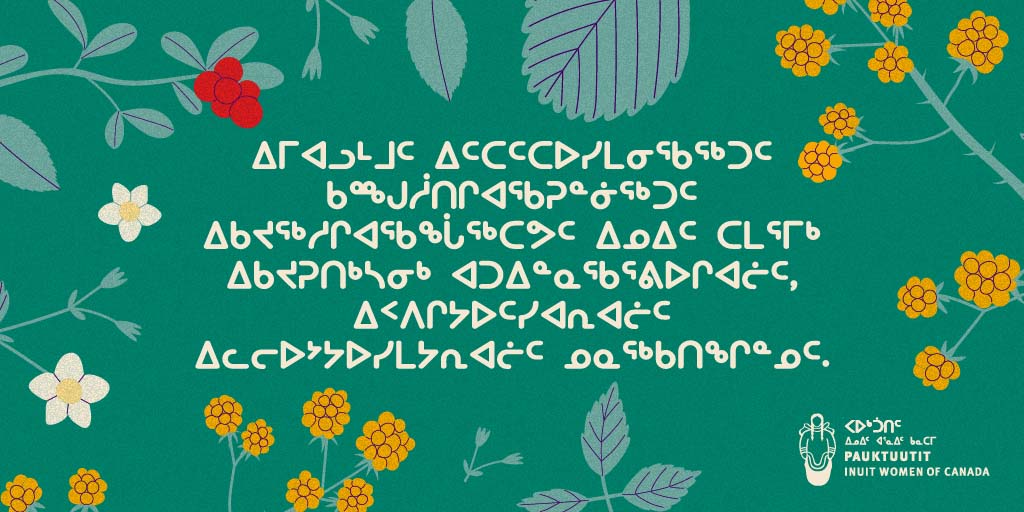
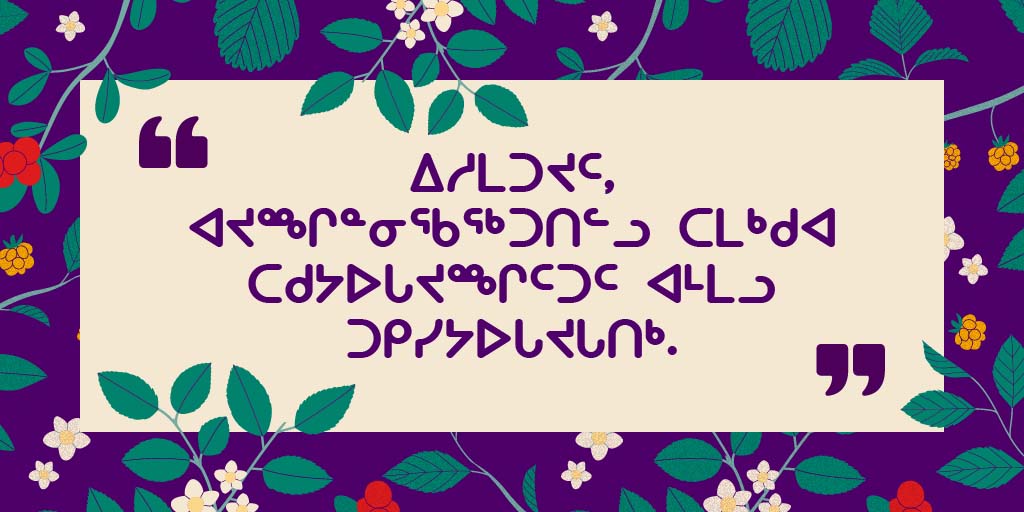
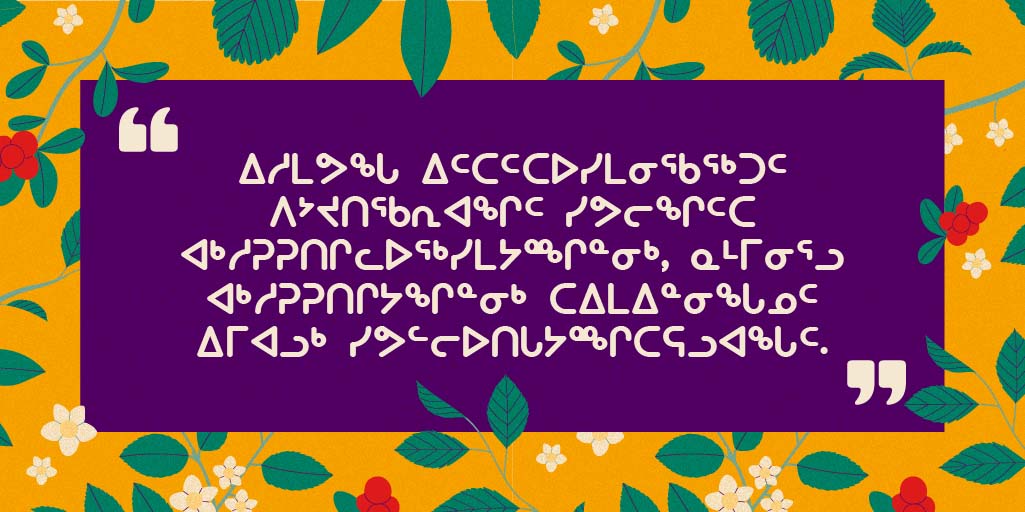
SOCIAL MEDIA GRAPHICS
We’ve created these shareables for you to use or draw inspiration from to make ones that fit your organization’s needs and goals.